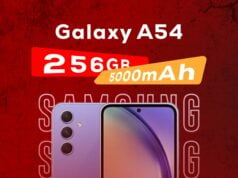
KEYWORDS + PHRASE:
INTRODUCTION
Blockchain is a familiar term in the tech world, not just another obscure jargon. It functions as a database that records, stores, and tracks information. While the potential of Blockchain has been extensively discussed, especially with the surge of bitcoin, its practical implications for business owners might remain unclear. As a business owner, you may wonder: What does blockchain really entail for your business? How can it enhance your workflow and contribute to business improvement? Let’s delve into these questions and unravel the practical benefits of blockchain technology for your enterprise.
WHAT IS BLOCKCHAIN?
Blockchain is a tamper-proof, sequential ledger rooted in cryptographic principles, fostering trust in transaction timeliness, accuracy, security, and speed. Entries are arranged sequentially, with each containing encrypted data merged with the prior entry’s encryption, enhancing security and time-stamping. Data is typically encrypted using hash codes, and value is stored as digital tokens. Functioning as a decentralized ledger, blockchain is maintained by numerous sources, eliminating the need for a central authority like a bank to confirm transactions. Recorded transactions are secure and generally irreversible once confirmed.
HOW DOES BLOCKCHAIN WORKS?
A blockchain is like a decentralized database made up of programs called scripts. These scripts handle tasks such as inputting and accessing information, as well as saving and storing data. Unlike a traditional database, a blockchain is distributed, meaning multiple copies exist on various machines. All these copies must match for the information to be considered valid.
Here’s how it works:
Transaction information is collected and organized into a block, similar to a cell in a spreadsheet. Once a block is full, the information undergoes encryption using an algorithm, resulting in a unique hexadecimal number known as the hash.
This hash is then added to the header of the next block and encrypted alongside the other information within that block. This process continues, creating a chain of interconnected blocks. Each block in the chain contains a hash that links it to the previous block, forming a secure and tamper-resistant system.
HOW DOES BLOCKCHAIN WORK FOR BUSINESSES?
In a report by deloitte, it explained how that blockchain serves two primary purposes:
Firstly, it is widely recognized for facilitating the trading and management of cryptocurrencies like Bitcoin. Secondly, it plays a crucial role in managing various transactions associated with trade and commerce, including finance-related processes such as payables, receivables, and compliance. These applications are referred to as business blockchains.
Business blockchains are currently reshaping transaction management by reducing time and costs across various processes, enabling near real-time operations, and ensuring a high degree of accuracy and control with minimal risk. Leveraging automated, cost-effective mechanisms, blockchains facilitate secure, real-time asset transfers and incorporate governance through smart contracts. These contracts enforce terms, such as payments, fostering increased trust in recordkeeping.
In the realm of finance, blockchain finds applications in procure-to-pay, order-to-cash, trade finance, intercompany transactions, and reconciliation. Beyond finance, processes like supply chain management, asset tracking, warranty service, and regulatory compliance can also be streamlined using blockchain technology. While business blockchains can function independently, their value is significantly enhanced when integrated with other technologies like machine learning or the Internet of Things, offering a comprehensive reimagining of end-to-end processes.
What are some uses for blockchain technology in business?
1. Enhance Your Supply Chain Transparency: Utilize blockchain to create a secure and immutable ledger, recording every step in your production and distribution process. This transparency helps you reduce fraud and ensures the authenticity of your products.
2. Automate Agreements with Smart Contracts: Implement smart contracts on your blockchain for automated execution of agreements when predefined conditions are met. This streamlines and automates various business processes, reducing the need for intermediaries and potential errors.
3. Optimize Your Cross-Border Transactions: Leverage blockchain for faster and cost-effective cross-border transactions. By eliminating the need for multiple intermediaries and reducing processing times, you can streamline international trade.
4. Explore Decentralized Finance (DeFi) Solutions: Investigate DeFi solutions built on blockchain for alternatives to traditional financial services, such as lending, borrowing, and trading, without relying on traditional banks.
APPLICATION OF BLOCKCHAIN FOR BUSINESSES
Below is 5 top application of blockchain for businesses in 2024:
1. Supply Chain Management:
Employ blockchain to enhance transparency and traceability in supply chains. By recording every step in the production and distribution process on an immutable ledger, businesses can reduce fraud, ensure authenticity, and optimize overall supply chain efficiency.
2. Smart Contracts for Automation:
Utilize smart contracts on a blockchain to automate agreements and processes. This enables businesses to streamline and automate various tasks, reducing the need for intermediaries, minimizing errors, and increasing the efficiency of contract execution.
3. Cross-Border Transactions:
Optimize cross-border transactions by leveraging blockchain technology. With reduced reliance on intermediaries, businesses can achieve faster and cost-effective international transactions, eliminating delays and enhancing overall financial efficiency.










